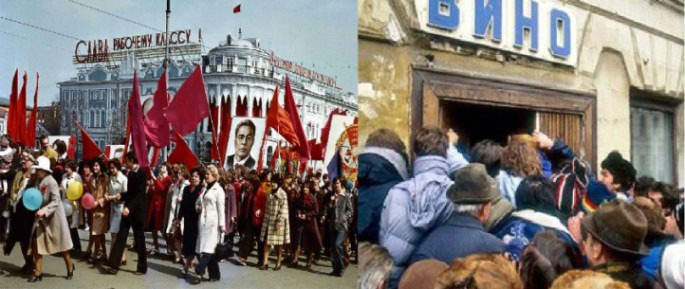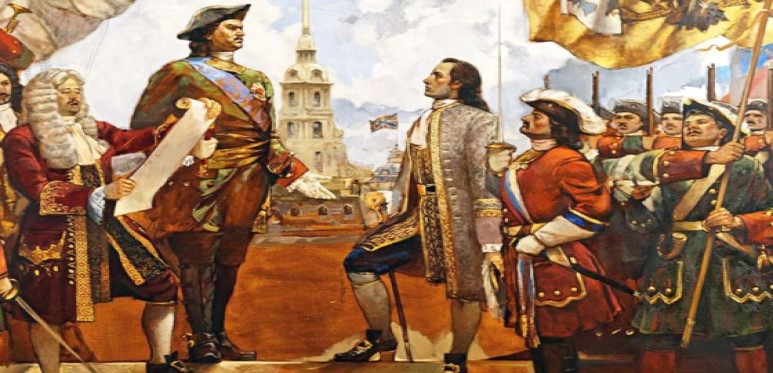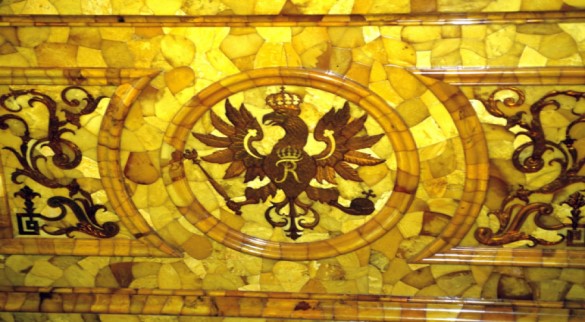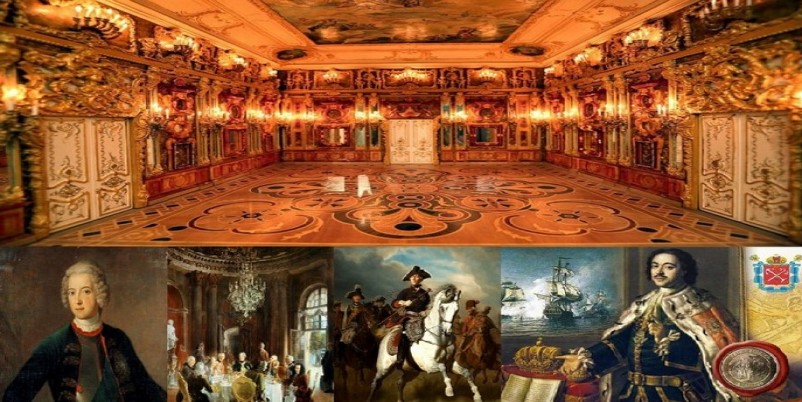As a child, Vovka didn’t understand what communism meant. There was no one to explain it, his parents had died, and at the age of ten Vovka found himself in an orphanage. He learned to read early and his parents instilled in him a love of music – Tchaikovsky, Chopin, Paganini – and good books. He grew up to be a curious and emotional boy, an exemplary pupil at school and took violin lessons. But now the mothers of yesterday’s school friends forbade them to communicate with Vovka, fearing the harmful influence of the street, which became Vovka’s home. At his 10 he became a social outcast. Left all alone, Vovka suffered from loneliness ten times more than any other boy.
In the orphanage, the older pupils quickly beat out a childhood away from him, and Vovka now ran three times a week to the boxing school, where he learned to swing his fists. He swapped his violin for a guitar and sang vulgar songs with his street friends. Soon his muscles grew strong and Vovka could knock down an offender with one punch. He became feared and respected by others, and the orphanage world was divided into friends and enemies for him. One day the enemies surrounded him and decided to beat him up. Vovka jumped out of the second-floor window and brought a dozen friends from the street the next day. They painted the instigators’ faces with fists and threatened to break the bones of anyone who touched Vovka.
At that time, Vovka was not interested in politics. But adulthood comes unnoticed. And with it, new contagions. Politics already irritated his eyes. Red banners on the central avenues swayed in the wind: “This generation of Soviet people will live under communism! People cheered, and radios blared patriotic songs. At demonstrations, men waved red flags and drank vodka in back alleys. Women flaunted their white socks and crepe dresses. Old women at the doorsteps washed the bones of both. Convoys with military equipment and soldiers traveled east to plow the virgin lands of Kazakhstan.
On 9 May Soviet people celebrated the victory in the war. Drunkards with medals and orders on their jackets were quietly taken by the militia to sobering-up centers. War invalids playing accordions on suburban trains, singing bitter songs, and begging for money for vodka were caught and sent to the northern islands to die. It was a time of celebration for the new generation, and it was not worth spoiling the public with the sight of legless drunks. Who will remember those soldiers who died of hopelessness, loneliness, and vodka, buried in the frozen ground of the Solovetsky Islands? Vovka was watching all this, he was bitter and sad.

In front of him in the column of demonstrators was a chubby man in a suit and hat, carrying a bulging briefcase.
“Excuse me, uncle,” Vovka called to him, “what is communism?”
The fat man stared at Vovka, clutching the briefcase to his chest just in case:
“Ah, so you’re an inquisitive boy, that’s commendable,” he widened his mouth in a semblance of a smile. “In communism, you get everything you need. For example, what do you want?”
“I want a bicycle and a camera!” Vovka blurted out without hesitation.
The chubby man thought: “Well, your needs are modest. You’ll get a bicycle. But you must be a leader and obedient. Always be ready! You are a pioneer, aren’t you?” He pronounced the word with an ‘e-e-e’.
“No, I wasn’t accepted as a pioneer,” Vovka shook her head, “I got a B in discipline in the quarter.”
“Ah-ah,!” the man stretched, “so you’re a bully?” He gripped his briefcase even tighter.
“No, I just don’t like snitches and traitors. Mishka, from fifth grade, reported everyone to the headmaster. I punched him in the teeth for it,” Vovka showed his fist.
“So you’re a rebel?” The fat man stared at him.
Vovka didn’t know what a ‘rebel’ meant, and the fat man summed it up: “We send such people to labor camps for re-education, understand? We’ll teach you to love Soviet power there, boy!”
At this point, Vovka thought he must have fallen in with the boss of snitches.
In the evening he played the guitar and sang songs to his street friends, the local gang, and criminals. His friends poured him a glass of port wine: “Let’s drink to the fact that we have everything and nothing bad for it,” Tyurya, the leader, grinned with a golden tooth and patted Vovka on the shoulder, encouraging him. Tyurya did not threaten him with labor camps, and Vovka liked his communism better.
***
Vovka was spoiled with attention from girls from an early age. He had blond hair, green cat-like eyes, milky white skin, and plump pink lips. The girls wanted to kiss him, and the pioneer maid came to his room in the evening and looked at him strangely, which made Vovka uncomfortable, he thought she wanted to eat him. Her visits strained Vovka, and he did not know how to get rid of her. But soon the counselor of all pioneers became pregnant and fell behind Vovka, comforted by her new role, and when the role began to protrude from under her pioneer uniform, the girl was quickly dismissed.
Vovka liked the history lessons. The teacher was a young and beautiful woman. She dressed fashionably, her long slender legs were always tucked into tight exciting skirts, and her chest voice made Vovka’s stomach churn. He was placing a small mirror under the desk and pointing it at the teacher’s legs hidden under her skirt. Vovka squinted his eyes in the small mirror, admired the teacher’s legs, listened to her voice, and this technique probably created in him a lifelong love of the subject. One day his beautiful historian told him about the Amber Room and its mysterious disappearance. Vovka liked mysteries, and he loved to dig through books, looking for clues.
The years passed. Vovka grew up and became cynical about politics and women.
In the country, the word “communism” became a dirty word, and “capitalism” became desirable.
New slogans hung in the avenues: “To a bright future – through private property! The new ruler of the Kremlin, Mikhail Gorbachev, finally abolished serfdom, introduced by Tsar Peter and prolonged by the Soviet kolkhoz, and the serfs began to be issued with passports. They rushed to the cities, and the Russian countryside was emptied of drunkards, old men, and old women.
And the cities began to ring with serfs. In the avenues, yesterday’s kolkhozes shelled seeds, blew their noses on the pavement, and wiped their fingers on the trousers of French fashion designers.
People were allowed to show initiative, to develop cooperation. Vovka had ideas and one day he decided to try to put them into practice. He went to the executive committee with his business plan and waited in line. He was accepted by a muzzled communist with a proletarian red face. By now Vovka had gained experience in business and wanted to help his seaside town develop its tourist infrastructure. The red-faced man took the business plan and read it.
Then he stared at Vovka: “Who are you? You’re not one of us, you’re not a communist, you’re not a Komsomol member! You’re not even Jewish, you haven’t even learned to steal!
He refused and threw Vovka out into the street. But he hid the business plan, and soon Vovka saw how the assholes began to work on his project. And then he remembered the fat man who had taught him communism.
And when he looked around, Vovka saw that all these communists, Komsomol members, and other ass-kissers were rushing to take over everything. And he realized that they had found a new way to their private communism. And they don’t let outsiders near the trough. And Vovka won’t live long enough to get his bicycle. And he could easily end up in a labor camp for his initiative. Or a brick could fall on his head. And he has decided to get out of this perestroika.
***

Living in another country, Vovka was still fascinated by history. One day he remembered the story of his favorite lady historian and decided to solve the mystery of the Amber Room. Having dug into books on Russian history, Vovka learned that there were two tsars in Russia at once. Peter was the second tsar after his older brother, Tsarevich Johannan. He was born in 1672, became the “junior” tsar at the age of ten, and after his brother died in 1696, he became the sole tsar of the Russian land. Tsar Peter was a great reformer; no one after him equaled what he did for his country. That year Russia drove the Turks out of Azov, but the young tsar witnessed Russia’s entry into Europe in the Baltic and the return of Russian lands seized by Sweden. In the Northern War of 1700-1721, Russia defeated the Swedes and was recognized by all of Europe. Tsar Peter I himself was recognized as a great military leader.
From books, Vovka learned that not everyone in the country loved Tsar Peter. In 1689 his sister Sophia plotted a palace coup and decided to kill her brother. However the nobles loyal to Peter and their troops surrounded Moscow, and Sophia was imprisoned in the Novodevichy Monastery. Her cronies were beheaded. Tsar Peter overcame the difficulties and strengthened his power with the help of his loyal subjects.
Did the nobility accept Peter’s reforms? Was he loved in the Senate?
“I order the senators that they should not make their speeches in writing, but only in their own words, so that everyone may see the stupidity of each of them. Peter.”
“It has come to our notice that on the Nevskaya Perspectiva and at meetings the grown-up children of noble fathers, in violation of etiquette and the rules of the court, are showing off their tinsel corsets and pantaloons with tinsel. I order the chief of police of St. Petersburg to catch these dandies with all diligence, to bring them to the Foundry Court, and to whip them until their pantaloons look lewd. Pay no attention to rank and title, nor the cries of the punished. Peter”.
If there were a Tsar like that in Russia today, Vovka thought, he would quickly teach modesty to those present with their fingers spread.

Peter was not loved by his people, but he was loved and respected by Europe. In 1716, King Frederick William of Prussia, the father of Frederick the Great, gave Russian Tsar Peter his yacht and jewelry from the royal palace in Berlin as a token of friendship and in exchange for 55 two-metre-tall Russian soldiers to guard him. The jewels were panels and furniture made of Baltic amber of the highest quality. This unique gift was presented in the Tsar’s palace near St Petersburg, the new capital of Russia, and was named the Amber Room.
Before the Germans occupied Tsarskoye Selo in 1941, the Russians managed to remove only the furniture from the museum and hastily fled. The Germans no longer believed in friendship after Stalin’s treachery. The Russians had betrayed and trampled the memory of their Tsar Peter the Great by destroying his tomb on Lenin’s orders. So the Germans decided to return the King of Prussia’s gift home. It took seven Wehrmacht soldiers 36 hours to remove all the panels, pack them into 22 crates, and send them to Königsberg. There, the Amber Room was reassembled and put on public display in the Royal Castle.
With the advance of the Russians, the Amber Room was dismantled, and stacked in containers. However, evacuation from Königsberg was impossible, and the railway communication with Germany was interrupted. Since those days, traces of the unique masterpiece of art called “the eighth wonder of the world” have been lost.
The “Wonder of the World” was searched for all over Germany, in the mountains of Austria and Switzerland. Even in South America, where the Nazis fled after the war.
In 1967, the USSR created a state commission to search for the masterpiece. After almost twenty years of fruitless search, in 1984, the commission, headed by a senior researcher of the State Historical Museum, Professor A. Brusov, concluded that the Amber Room, which was located in the Order Hall of the Royal Castle burned during the British bombardment.
Vovka did not believe in the tales of the professor and continued to dig. And this is what he found.
There are several versions of the location of the Amber Room.
1) It is believed that it is hidden on the territory of the present Kaliningrad region, where a network of dungeons, stretching for dozens of kilometers, connects different corners of the former Koenigsberg.
2) According to another version, the Amber Room is hidden somewhere on the territory of Eastern European states.
3) German art historian Johann Georg Stein came to the conclusion that the Amber Room was taken out of Königsberg in April 1945 by SS Obergruppenführer Kammler in the direction of Helmstedt and hidden in the salt mine of Gresleben. Stein’s death under mysterious circumstances fueled interest in the mystery.
4) Members of the Warsaw Treasure Hunters’ Society searched for a room in the ruins of an ancient castle in Paslenau, 100 kilometers from Königsberg.
5) German treasure hunter Helmut Hansel and his American colleague Graham Smith excavated an abandoned tunnel on the slopes of Mount St. Helena in northern Bohemia, where they discovered a corridor leading to an underground lake.
But the Amber Room had disappeared. Could it be gone forever?
This impasse only made Vovka more excited. With the instinct of an explorer, he felt that the solution to the mystery was close at hand.
The clue was found by chance. Vovka found information about the Amber Room by reading the published diary entries of former Gestapo chief Heinrich Muller. In 1948, Muller, who was in hiding in Switzerland, was recruited by the American secret service and became President Truman’s adviser on Stalinism. He kept diaries throughout his life, and after he died in 1981 the records fell into the hands of an American journalist who managed to publish some of them. In his diary, Muller wrote that he was still receiving containers of stolen goods from Europe five years after the war! Here is an example of German order and discipline! In his notes, Muller also mentioned how he sold the Amber Room in pieces to his CIA colleagues, and how he gave unique pieces from this collection to their wives in exchange for bedroom games. And here the mysterious death of the German art historian Stein has a logical explanation. Stein came dangerously close to solving the mystery.
The walls of the American estate of the former head of the Gestapo were hung with paintings that are still internationally wanted, the library was decorated with rarities stolen from the palace of Catherine the Great, including silver and gold tableware.
Vovka was happy. He had satisfied his curiosity, found the solution to the mystery, and ended the search. And he sent the results of his research to Russia, to historians. But he never received a reply. Who is ready to change the official version and admit that he is a profane person in favor of some Vovka?
And reflecting on all this, Vovka thought that the criminal Tyurya, who had once poured him port, was much more honest than the pot-bellied man with the briefcase at the demonstration. Perhaps Vovka was wrong in his conclusions. But life will show who will live well in Russia.

© Copyright: Walter Maria, 2015 Certificate of publication №215112601876/
2016 Certificate of Publication No. 216121201649

Be First to Comment